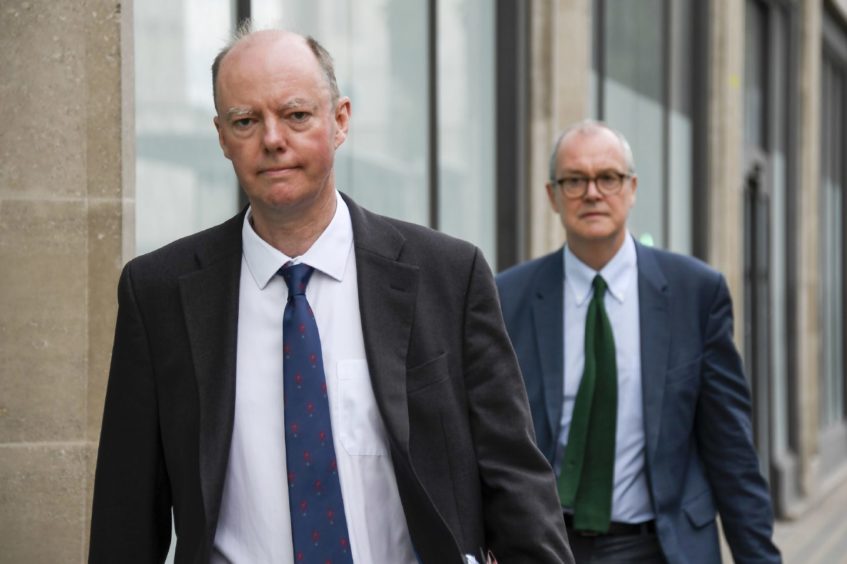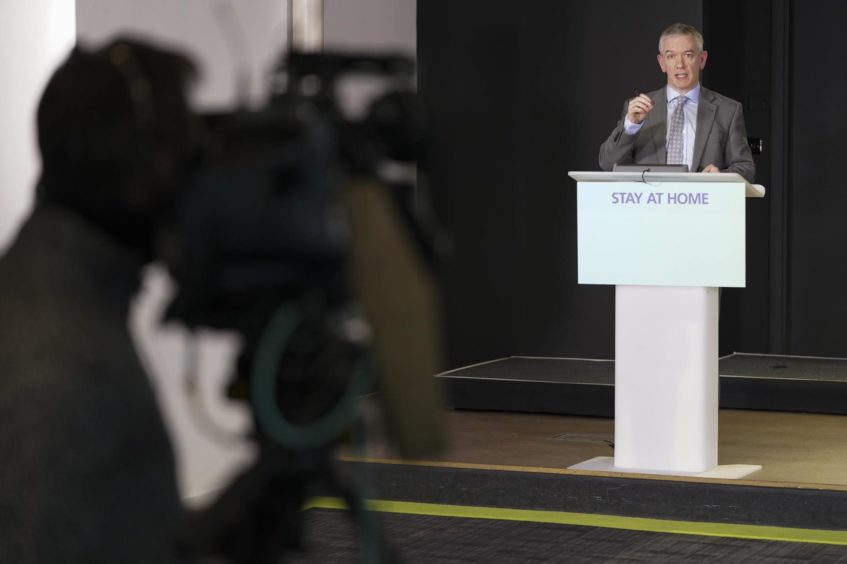Scotland’s chief medical officer has predicted the country will “most likely” face a further surge in coronavirus cases this summer, as post-vaccine modelling predicts 30,000 more deaths across the UK.
Speaking at the Covid-19 committee at Holyrood on Wednesday, Gregor Smith said he had seen modelling that suggests a further spike in cases will hit later this year.
It comes after the UK’s chief medical officer, Chris Whitty, told the science and technology committee at Westminster that a new surge in infections is anticipated as restrictions are lifted in the coming months.
The latest predictions from Warwick University and Imperial College London suggest there could be a further 30,000 deaths from Covid-19 across the UK, despite many of the most vulnerable groups already receiving first doses of a vaccine.
Mr Whitty told MPs that the modelling reflects the fact that Covid-19 is a common virus so “even if you have a relatively small proportion of people still remaining vulnerable, that still equates to a very large number of people overall”.
Asked whether he agreed with the comments of his UK counterpart, Dr Smith said he would “strongly associate” himself with the remarks.
“It is a possibility, still, that we will see a further surge later in the summer – most likely,” Dr Smith said. “I’ve seen modelling which shows the path towards that.
“So much is dependent on how all of us respond to this gradual reopening of society that we are undertaking at the moment.
“If we lose the sense of caution that we have so carefully guarded for so many months, it is very quickly going to re-establish high levels of infection again.
“We have to remember just the proportion of the population that remain susceptible to this virus and although we’ve provided protection to those who are most vulnerable within society, it doesn’t mean to say we’ve given that protection to everybody yet.”
Modellers were asked to assess how many people could die based on assumptions that vaccines would prevent 70% of deaths after a first dose and 88% after a second dose.
Those at the highest risk would include those for whom the vaccine is not effective, those who refuse the offer of a jab and anyone who is otherwise unable to take it.
‘We will get a surge in virus’
Speaking during a parliamentary committee meeting on Tuesday, Professor Whitty said: “As things are opening up, what all the modelling suggests is at some point we will get a surge in virus.
“We hope it doesn’t happen soon, it might for example happen later in the summer if we open up gradually or because of the seasonal effect it might happen over the next autumn and winter.
“All the modelling suggests there is going to be a further surge and that will find the people who either have not been vaccinated or where the vaccine has not worked. Some of them will end up in hospital and sadly some of them will go on to die.”
Dr Smith told the committee he does not believe that Covid-19 can be “eradicated” but said an elimination strategy of driving case numbers as low as possible would make outbreaks more manageable in the future.
“We are dealing with a very different situation than even we were facing last summer as we began to exit lockdown,” he said.
“The virus that we are now dealing with is a completely different virus in many respects, certainly in the way that it behaves, than we’ve become used to.
“And while we take this very considered, measured approach in terms of how we begin to change the restrictions that we’ve been living with, it’s really important that we don’t tip the balance in its favour again – and there’s a very real risk that will happen if we move too quickly.”
Speaking during the same Holyrood session, first minister Nicola Sturgeon insisted her government’s focus would be for any easing to be “steady and one-directional”, rather than going too quickly and taking “one step forward and two steps back”.
She said: “With a virus like this, what you absolutely can’t do is just say we’re going to let it simmer at this medium level, like a gently simmering pot.
“You can’t just say you’ll accept X number of cases a year and X number of deaths and X number of hospitalisations a year. The virus won’t behave, it won’t play ball with you like that.”
Ms Sturgeon added: “You have to have an approach, in my view, where our objective has to be to eliminate. Even if you don’t quite achieve elimination it is the act of trying to get it as low as possible that keeps it under control.”




